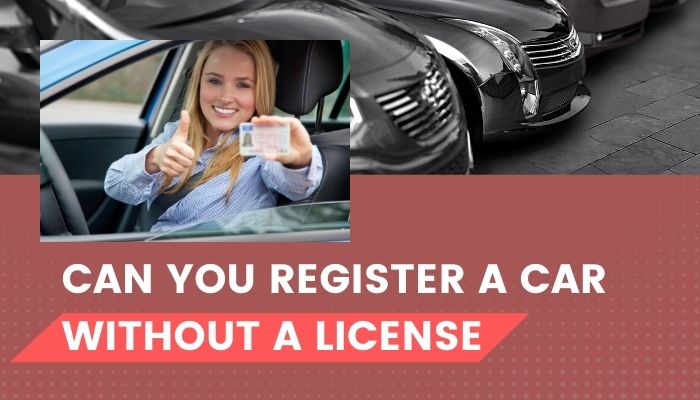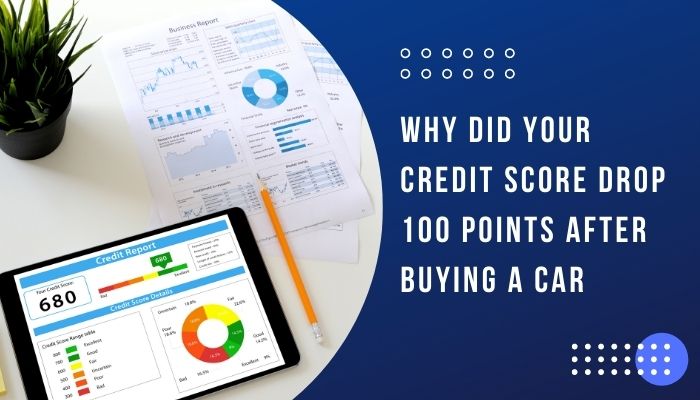How Much Are Dealer Fees on a Used Car
Buy a used car could be the only option available to you. In that case, you have to approach a used car dealership to get the vehicle you want. Apart from the vehicle’s price, there are several used car dealer fees you’ll have to pay before you can have the car. The problem is that most car buyers are ignorant about the amount of money in fees they’ll pay. So, just how much are dealer fees on used cars? The amount varies from dealership to dealership and state to state, so it’s critical to do the necessary research beforehand.
When budgeting for a used car, be sure to include all the extra fees you’re likely to pay. With that, you’ll avoid any surprises that the dealership may throw at you. While some of these fees are compulsory, others are negotiable, giving you the chance to agree with the dealer. Keep reading to learn more about the used car dealer fees.
Mandatory Used Car Dealer Fees
How much are dealer fees on used cars? You can only answer that question if you know the mandatory used car dealer fees, which are usually taxes, part of the price of the vehicle, or other fees. Be sure to budget for these costs together with the price of the car. They include the following:
Title and Registration Fees
After buying a used car, it’s necessary to register it in your name by transferring the title from the original owner. It is usually easier to work through a dealership since they know how to handle documentation and transfer the title to you. The dealership charges a fee, title tax, and registration fees for their services.
Registration fees are due to the state every year you own the car. That’s because you have to renew your ownership annually. While some states – Delaware, Georgia, Kentucky, Pennsylvania, and Massachusetts – have a flat fee, others vary it according to the vehicle’s value, age, and weight. The amount of money you pay for the title and registration varies from state to state. For instance, drivers in Massachusetts pay a $75 title fee and a $60 registration fee.
Used Car Sales Tax
Used car sales tax is a compulsory fee for anyone purchasing a second-hand car. In most states, the sales tax depends on the value of the vehicle you’re purchasing. The rate of tax also varies depending on your home state. Say you live in New Jersey but buy a used car in Pennsylvania. You’ll pay tax at a 6.625% rate applicable in New Jersey.
Since you’re buying a used car, its overall value is much lower than that of a brand-new vehicle. Therefore, the used car sales tax will be much less since it’s a percentage of the vehicle’s overall value. So, it would help if you weren’t afraid about overshooting your budget.
Documentation Fees
Documentation fees may only be applicable in some states. It covers all the paperwork required for the vehicle to complete the transaction and register the car in your name. since the dealership has to prepare a contract for signing, it’ll include that in the documentation fee. The following are some of the items covered by the documentation fees:
- Contract
- Financing application and offer
- Paying back-office employees
- Registration
- Submitting paperwork to the DMV
- Title transfer
While most states have documentation fees, few of them regulate it. It ranges from $85 to $1,100, depending on the state from where you’re buying the car. In California, the documentation fee is capped at $85, while in Florida, it can start from $700 and rise to $1,100. Find out from the dealership how much you’re likely to pay in documentation fees before signing any deal.
Vehicle State Inspection Fee
Most states mandate a safety inspection, which a car must pass before passing from the dealer or a private owner to you. Most dealers would transfer the cost to you as a separate payment apart from the price of the vehicle. Since it’s a nominal fee, a state inspection fee can range between $7 and $30, depending on the state.
Car Insurance
Did you know that car insurance is mandatory on brand-new and used cars alike? Without insurance coverage, you wouldn’t be able to drive the vehicle from the private seller’s or dealership’s premises. If you have insurance in another car, you’ll likely not have to buy a new policy. Otherwise, you’ll have to pay for it for you to drive your newly-acquire car home.
Insurance costs vary depending on several factors, including the driver’s age, condition of the vehicle, driving record, your home state, and what’s being covered. Find out from the dealer just how much you’re supposed to pay.
If you purchase a used car through financing, it’s mandatory to buy full insurance to cover your vehicle against liability after an accident, whether or not you’re at fault. The insurance cover will include credit insurance if you default on the loan payments mid-term.
Electric/Hybrid Vehicle Fees
Given how many fads electric/hybrid cars have become, you may want to buy one to save on fuel. Consequently, you’ll pay less or no fuel taxes, denying your state of vital revenue. For that reason, some states may demand an extra fee for buying an electric or hybrid vehicle. However, some states, including Delaware, Florida, Maine, New Jersey, and Rhode Island, have done away with this fee to encourage people to buy eco-friendly vehicles. If your state insists on this fee, pay it. Within a short time, you’ll have saved enough money to offset the cost.
Negotiable Used Car Dealer Fees
How much are dealer fees on a used car? At most car dealerships, the salesperson is the first person to interact with, whose work is to convince you to buy the car. Once you’ve agreed on the price, you’ll move on to the finance and insurance office, where you’ll complete the transaction. The manager may inform you of other fees, which you weren’t aware existed. These fees, which include the following, are usually negotiable.
Dealer Preparation Fee
Dealer preparation refers to the fee you pay for having the dealer prepare the car for you before driving it away. The dealer may wash and spruce up the vehicle as preparation. While it can be difficult to argue against the fee when buying a used car, you still get the opportunity to negotiate how much you’ll pay.
Gap Insurance
If you’re leasing instead of buying the vehicle, the dealership may require paying gap insurance or guaranteed asset protection. Even though some lenders may also require you to pay gap insurance, it is generally optional when buying a car.
Gap insurance covers the difference between your loan amount and the car’s value if it’s totaled. It is unnecessary if you make a down payment on the vehicle. You can buy it from the dealer or auto insurance provider for $299 to $900. Therefore, you should consider all available options before accepting a gap insurance deal.
VIN Etching
One of the best ways to ward off car thieves is to have your car’s vehicle identification number (VIN) etched on the windshield. Even if the thieves remove the VIN plate from the vehicle, they won’t sell it. Of course, the dealer can engrave the number for you at a fee, which could be higher than asking someone else to do it for you. If you can’t find a reliable person to do it for you, opt for cheaper online DIY kits, which cost less than $20.
Credit Insurance
Even though non-negotiable, credit insurance is optional. It covers whatever remains of your car loan if the car gets written off after an accident. The insurance terms may vary, specifying that it can only cover loan repayment if you lose your job, get disabled, or die. Whether or not you get a loan may depend on your acceptance to take out credit insurance. But that shouldn’t be the case since disability or life assurance can provide similar benefits.
Extended Warranty
An extended car warranty or vehicle service contract keeps protecting your car long after the manufacturer’s warranty has ended. A used car dealer may sell it, especially if the manufacturer’s warranty is just about to expire. However, that doesn’t mean that the dealer is the one to honor it, depending on a third-party company.
Therefore, if you opt for an extended warranty, check and ensure that the concerned company has the reputation of honoring such deals. A quick online search will reveal customer reviews, revealing much about the company. Also, be sure to read the details of the contract to know the labor and parts covered by the extended warranty. Dealers would mainly sell an extended warranty for anything between $1,800 and $2,500.
Tire-and-Wheel Protection
Tire-and-wheel protection is a type of warranty that pays for the patching, fixing, and replacement of your vehicle’s tires or wheels when damaged as a result of driving through potholes, broken glass, tree limbs, or nails. Even though tires are expensive, you might not need to purchase them frequently. Even so, patching a tire may cost as little as $10, which doesn’t warrant an extra expense in tire-and-wheel protection.
Appearance Packages
A used car dealership may offer several appearance packages, including paint sealant, wheel locks, and window tints. Most dealerships charge appearance packages at $1,000 or thereabout. That would seem like a reap-off, considering that the price of wheel locks is $15, paint sealant $20, and a window tint film $46, totalling $81. You can buy these items yourself and hire a local mechanic to have them fitted for way lower than what you’d have paid to the dealer.
Why Do Used Car Dealers Charge Fees
Car dealers charge fees to cover employee salaries, office maintenance, health care, and electricity. Due to the charges, dealerships tend to have higher prices than private sellers. Besides, dealers spend a lot of money maintaining the cars on the lot. They have to pass these costs to you by increasing the price or charging other fees.
Furthermore, the car dealer is out to make money, and it can only come out of your pocket. By the time you drive away with a car, you’ll have contributed at least $1,000 to their profit margin. They make that money via the price of the vehicle and additional charges. With proper knowledge of what used car dealers are up to, you can make lots of savings.
Conclusion
How much are dealer fees in a used car? Knowing the various fees and the amounts involved will help you avoid stress. If you know the exact amount, you can include the costs in your budget or set aside estimated charges. Since some of the fees are mandatory, you cannot own and drive the car without paying them. However, you can either negotiate or avoid them altogether for the optional prices.
Frequently Asked Questions (FAQ)
What is a dealer fee when buying a used car?
A dealer fee is any additional charge you pay on top of the price of the vehicle when buying a used car. It could be the title fee, registration fee, car insurance, documentation fee, or any other charge by the dealer.
What car buying fees should I pay?
There are several car buying fees that you should pay, including title fees, registration fees, car tax, documentation fee, vehicle inspection fee, car insurance, and electric/hybrid vehicle charges. Other types of payments are either optional or negotiable.
Can I avoid car-buying fees?
Yes and no. There are some car buying fees that you can avoid and others, which are mandatory. Mandatory fees include title fee, registration fee, car insurance, documentation fee, or any other charge by the dealer.
Why do car dealers charge fees?
Car dealers charge fees to cover their costs, including car maintenance, energy, and the profit margin. Even though some of these costs go into the price, others are treated separately.




